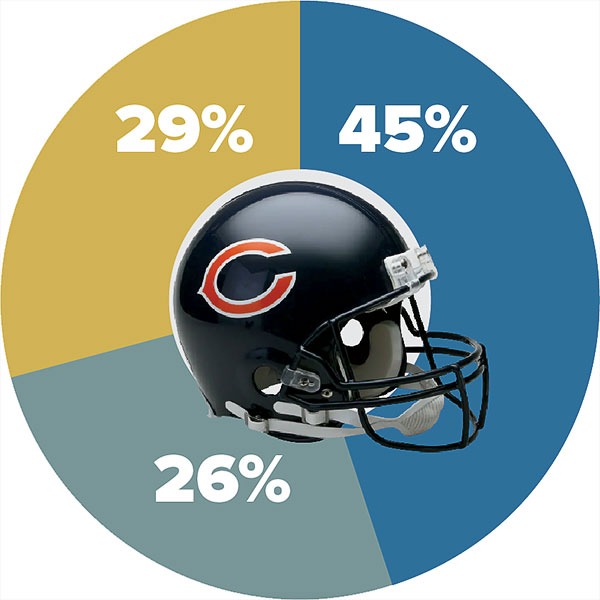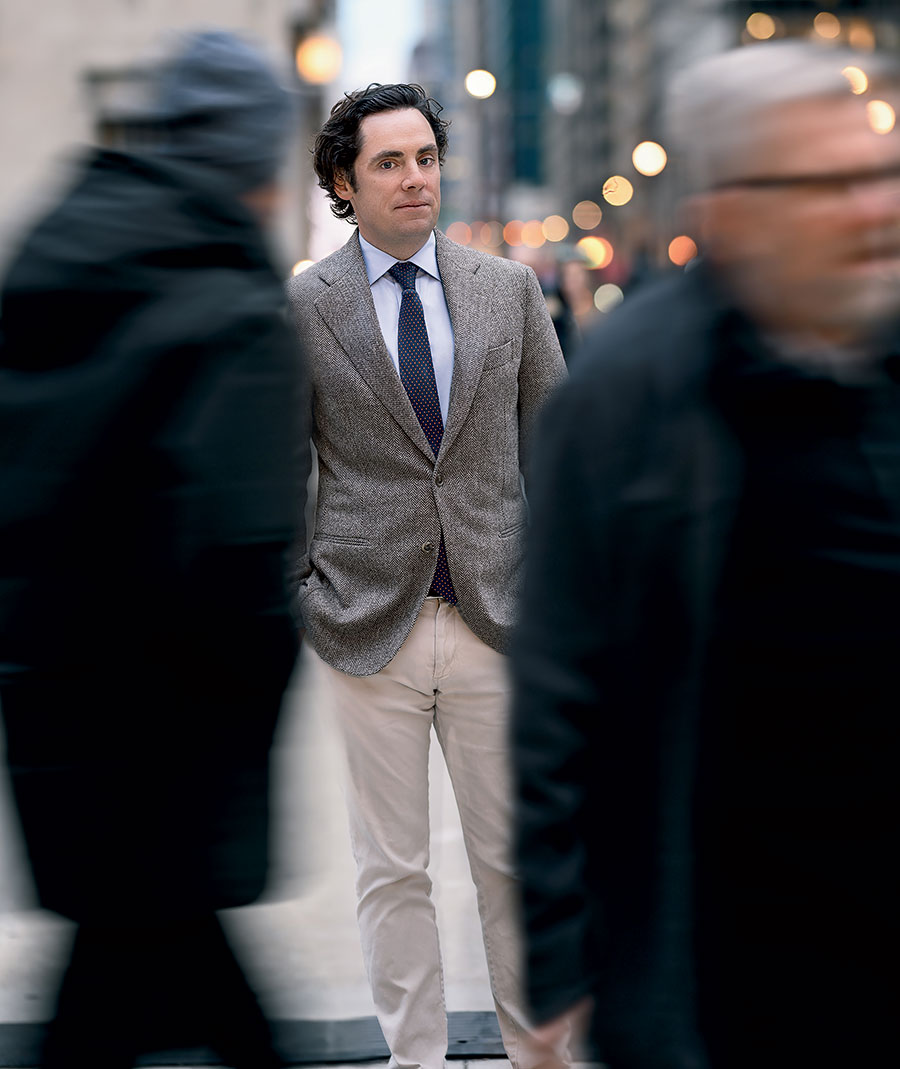Politicians tend to have extreme opinions. That’s how they win partisan primaries. Polling, though, shows that most voters have more moderate views, especially on hot-button issues such as gun control, abortion, and policing. “Our primary system and gerrymandering create this dynamic where you’re actually not getting the will of the people,” says Will Johnson, who since 2017 has been CEO of the Harris Poll, a Chicago-based survey company.
Harris’s polling finds that voters these days put a premium on pragmatism, competence, and moderation. That’s true of what Chicagoans want in their next mayor, too, Johnson says. He talked to Chicago about lessons from the midterm elections and what to look for in the race for the city’s top seat this month.
What’s your assessment of the polling in the midterms — specifically, the predicted red wave that didn’t happen?
We saw the market get flooded with more and more partisan polls — in this case, more leaning to the right — that skewed some of the averages. It created a distorted picture. There was a little bit of irrational enthusiasm, because if you drill down to the numbers of the last five weeks, the polling was really quite accurate. What voters were saying was they’re looking for pragmatism. This was a bit of a return to sensible moderation, competence, things of that nature.
Voters under 30 are strongly Democratic. Is that demographic more difficult to poll?
Short answer is yes, they’re trickier to reach. With these younger folks, because they consume media and communicate differently than some of the traditional methods, pollsters have to evolve. You’ve got to be able to ask them the question in the way that they’re using their smartphones. You’re interacting and creating surveys that are gamified in a way that engages them. Something might pop up [on an app they’re using] where they’d have the opportunity to engage in a survey, and then it’s quick — similar to ways they engage in social media. The attention span and amount of questions you can ask them is generally not as long as some traditional polling.
Let’s look ahead to the municipal elections. What are Chicagoans’ top concerns when picking a mayor?
It comes back to pragmatism, competence. This is a way less ideological electorate than we saw a few years ago in Chicago. Certainly, violence is the No. 1 issue, and what’s interesting is that it transcends demographics. Obviously, voters are concerned about it for safety, but also as it relates to the local economy — they see businesses leaving, less tourism, etc. Chicagoans are way more on the same page and way more nuanced than the conventional wisdom would have you believe. There’s overwhelming majorities that want both more investment in policing and investment in community outreach and things of that nature that help deal with the underlying drivers of crime.
You polled Chicagoans about Mayor Lori Lightfoot, and it wasn’t good news for her. What did you find?
Three of four voters said the city would be better off with a different mayor. That’s tough, when you have 74 percent in the “We’d like a change” column. That said, when you do head-to-head [polling]with other candidates, that actually provides some hope for the mayor. There’s no one who’s breaking away. [Jesús “Chuy”] García brings someone with significant name recognition, someone who’s made it to the runoff in a previous cycle. Those would probably be the two favorites to get to the runoff. It’s going to come down to who’s going to come across as the most competent. You saw this in elections in other major cities. That seems to be the driver.
What specifically is the discontent you’re hearing with Lightfoot?
[Voters] just seeing the violence and not feeling like there’s a plan that they understand to really address that. The other thing is, some of the conflicts she’s had with certain constituencies, some of the rhetoric people feel is not necessarily productive to solving the problem. Voters are exhausted, certainly on a national level, from name-calling and strong inflammatory rhetoric from both sides. We do see positive reaction to her in certain areas taking on entrenched factions as an agent of disruption.
Do you find that the public opinion on, say, policing is more nuanced than “defund the police” versus “back the blue”?
Exactly. That’s why you need to poll and you need to poll in a thoughtful way. With most of the polarizing issues of the day, when you get under the hood, the great majority of people have a thoughtful, nuanced view. So when you frame these big issues outside of conventional “You’re on one side, I’m on the other side” politics and look at it as an issue, you just see way more coalescing around “That’s a problem. How do we work together to solve it?” Guns is the same way. You have strong majorities that support a right to bear arms but also strong majorities that think sensible gun control is necessary.
Do politicians react to such polling? Can it help temper the extremes in politics?
I think so. But what’s even more impactful is an election in which they actually lose their job. What interests me from a polling and public opinion perspective is: Are we going to see our politicians heed the message that is clearly coming from the electorate that we want less of the rhetoric, less of the polarizing characters, and more pragmatic, competent leadership? People are just a lot smarter than the professional political class gives them credit for.
Lori and the Bears
The Harris Poll’s December surveys found more support among Chicagoans for the team’s planned move to Arlington Heights than for Mayor Lightfoot’s reelection.
How satisfied are you with the mayor’s performance?
■ Satisfied
■ Dissatisfied
■ Neither
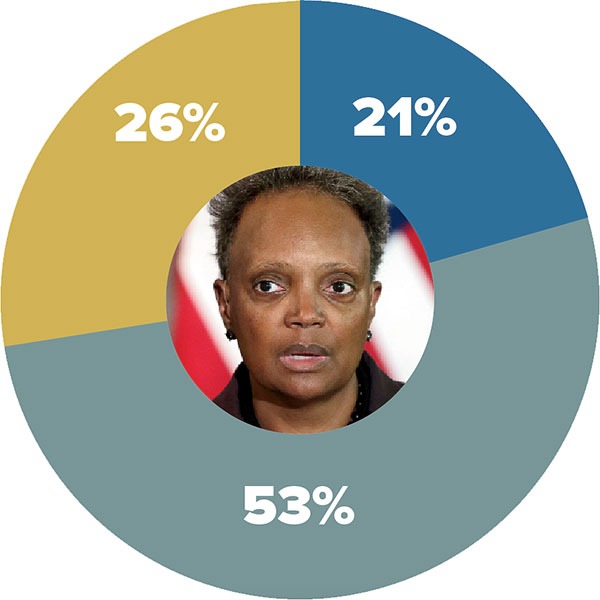
Would Chicago be better off with a different mayor?
■ Yes
■ No
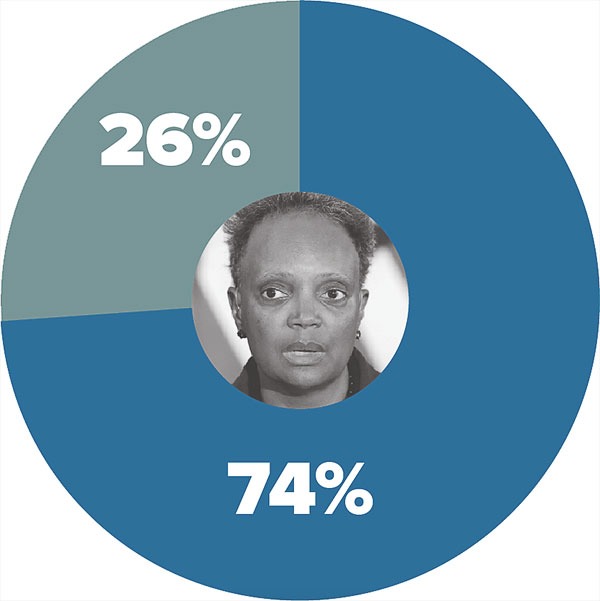
How supportive are you of the Bears’ plan to leave Soldier Field?
■ Support
■ Oppose
■ Neither or not sure
Chicago residents
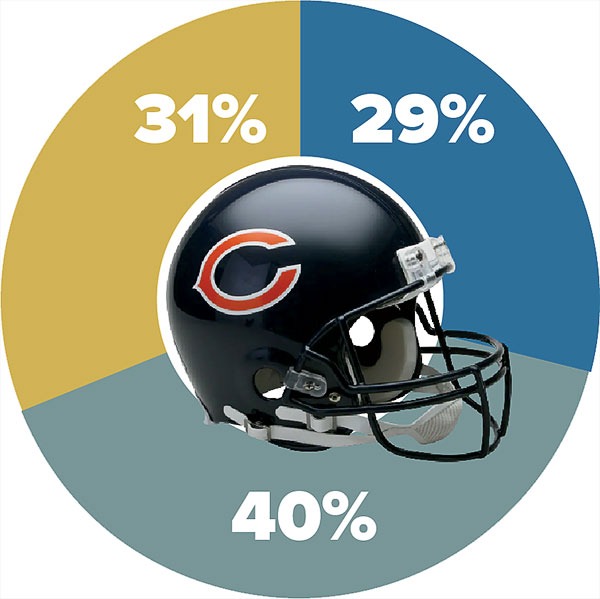
Suburban Cook County residents
